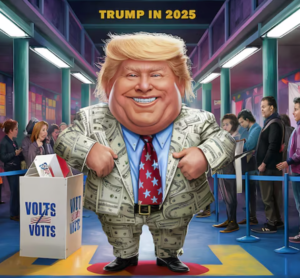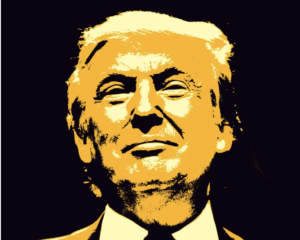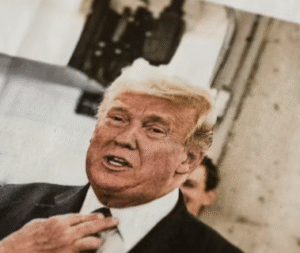$BABA $SPY $BTC
#ChinaTrade #XiJinping #JoeBiden #DonaldTrump #Tariffs #USChinaRelations #StockMarket #Crypto #GlobalTrade #USPolitics #EconomicPolicy #Inflation
Chinese President Xi Jinping has signaled China’s openness to cooperation with the U.S., regardless of the administration in power. This message, delivered during ongoing tensions between the two economic superpowers, comes amid speculation about former U.S. President Donald Trump’s potential return to the White House. Xi’s statement offers some insight into Beijing’s strategy of maintaining stable relations with Washington, despite internal political changes in the U.S. Whether it’s Joe Biden’s current policies or Trump’s possible future administration, China’s willingness to engage in diplomacy suggests it will remain focused on its long-term economic agenda. However, the looming threat of tariffs still casts a shadow over the already strained trade relationship, especially as Trump’s more aggressive tariff policies could be reintroduced.
For markets, Xi’s comments can be seen as both a stabilizing and risk-laden factor. From a global trade perspective, the Chinese leader’s stance shows a commitment to continuing dialogues that are crucial for economic stability. Stock market participants may interpret this as a cautious positive, especially for companies such as Alibaba ($BABA), which have extensive exposure to U.S.-China trade relations. Nevertheless, the potential return of high tariffs if Trump retakes office could introduce new market volatility, inflating costs for a wide range of sectors and potentially heightening geopolitical risk. Investors in broad-market indices like the S&P 500 ($SPY) may remain on alert for any sign that trade tensions could escalate under a future Trump administration, as this would likely trigger market disagreements and further economic uncertainty.
On the cryptocurrency side, any fluctuations in U.S.-China relations could have an indirect impact on crypto markets as well. During trade disputes, historically, investors have often sought alternatives to traditional assets. Therefore, assets like Bitcoin ($BTC) could see increased interest in the event of escalated tensions between the two nations. Crypto traders should be mindful of the repercussions tariff negotiations can have across different asset classes, potentially leading to a greater inflow into decentralized and international digital currencies. A more protectionist Trump stance under his previous tenure also led to regulatory challenges within the fintech space, a factor the crypto markets will be watching closely.
In summary, China’s signaling of cooperation, despite potential tariff threats and political change in the U.S., reflects a broad attempt to reduce economic uncertainty, although significant risks remain. Markets may fluctuate based on further developments in U.S.-China relations, with possibilities of longer-term ramifications for stocks, cryptocurrencies, and global trade moving forward. Investors will continue to focus on the disconnect between political rhetoric and economic realities, gauging how Beijing and Washington might navigate these increasingly complex dynamics.







Comments are closed.